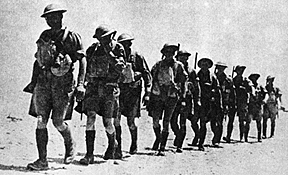A controversial drug which can keep people awake for days has been bought in significant quantities by the Ministry of Defence, the Guardian has learned. MoD bought thousands of stay awake pills
Ian Sample and Rob Evans
in advance of war in IraqThe MoD has admitted to buying more than 24,000 Provigil pills, which are licensed in Britain only to help people with rare sleeping disorders shrug off daytime sleepiness. Experts say the drug could be used "off licence" to keep pilots and special forces troops awake on little sleep.
According to figures from the Defence Medical Supplies Agency, which provides medical products "to sustain UK military capability", the MoD has been buying the drug since 1998 at prices at least 10% lower than those charged to the NHS.
The figures, which were released to the Guardian under the open government code, show that purchases peaked with an order for more than 5,000 pills in 2001, the year allied forces entered Afghanistan. The next largest order - for more than 4,000 pills - was delivered in 2002, the year before troops entered Iraq. In total, the ministry has spent more than £43,000 on the drugs.
Provigil, which is sold by the Pennsylvania-based company Cephalon, is licensed in Britain to treat tiredness associated with the rare sleeping disorders narcolepsy and obstructive sleep apnoea. In April, the Medicines and Healthcare products Regulatory Agency decided to allow Provigil to be used to treat "shift work sleep disorder", where people suffer extreme sleepiness because of the odd hours they work.
But the introduction of Provigil, which is also known as modafinil, has raised concern among some doctors who believe that its ability to banish tiredness could be abused.
Last night, the MoD denied that the drug was given to the armed forces and said it was unaware of any research it was carrying out on the drug. The Defence Science and Technology Laboratory, which runs the MoD's research programmes, did not respond to the Guardian's inquiries.
If the military was investigating possible uses for Provigil or had already authorised its usage, it would bring it in line with other countries such as the US and France. French military researchers openly recommend using the drug for 24-hour missions and the French Foreign Legion is known to have used the drug as long ago as 1991 to keep soldiers going during the first Gulf war.
The use of controversial stimulants by the US military was highlighted after an incident in April 2002 near Kandahar in Afghanistan.
Two US F-16 pilots, Major Harry Schmidt and Major William Umbach, mistakenly bombed a Canadian infantry unit, killing four and injuring eight. In the ensuing legal discussions, the pilots' lawyers said that the airmen had felt pressured into taking amphetamine before the mission.
Special forces, who can be expected to go on missions lasting 48 hours without sleep, and pilots on long duration flights would be the most likely users of the drug.
Precisely how Provigil works is unknown, even to its developers. According to some reports, common side effects include nervousness, insomnia, excitation, irritability, tremors, dizziness and headaches. It may also cause "gastrointestinal disturbances", including nausea and abdominal pain, and cardiovascular effects such as high blood pressure and palpitations.
Military interest in Provigil is fuelled by a desire to find alternatives to existing stimulants used to keep tired troops awake. While caffeine is used routinely, amphetamine - otherwise known as speed - is is also authorised by some military forces. But amphetamine has well-known side effects. According to Thomas Scammell, a specialist in sleep disorder drugs at Harvard Medical School, while the drug can effectively banish fatigue, it can also make people jittery, more aggressive and impetuous. "There are also plenty of cases of people leaving the military addicted to amphetamine," he said.
In contrast to amphetamine, studies of people on Provigil suggest that while the drug can keep them alert after going for long periods without sleep, it is not addictive and does not produce the potentially dangerous high associated with amphetamine.
The US military has stepped up research into Provigil since the 1990s. In one test, at the Aeromedical Research Laboratory in Alabama, helicopter pilots were given the drug after being kept awake for 40 hours. The drug sharpened their performance, especially between 3.30am and 11.30am, when tiredness is at its peak. More recent studies at the Walter Reed Army Institute of Research in Silver Spring, Maryland, showed people could still function after being awake for 85 hours if given the drug.
Dr Scammell believes that while relying on drugs to stay awake is bad in the long term, Provigil could be a better alternative to existing drugs used by the military. "Most of the time, when people are on [Provigil], they are just calmly awake, they don't feel jazzed up or wired. I'm sure the military would love to have a drug that didn't put soldiers at risk of those problems."
Refs
modafanil/Provigil
further readingHOME
Wired
'Provigil'
Caffeine
Dexedrine
Product Info
Smart drug?
Cephalon, Inc
BLTC Research
Quality Health Inc
Amphetamines.com
The Good Drug Guide
Modafinil (Provigil) : structure
Modafinil: The Kelli White Affair
Modafinil (Provigil) and Beyond
Big Pharma and Madison Avenue
UK army tests modafinil on soldiers
Modafinil (Provigil) and the Military Mind
Modafinil (Provigil): FDA endorses new uses

